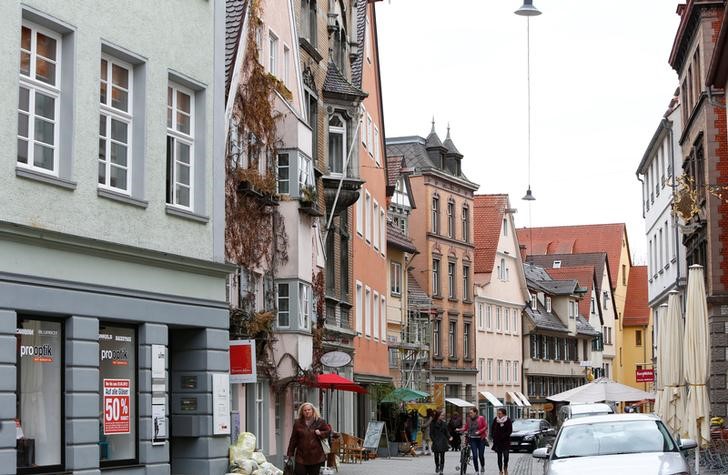By Geoffrey Smith
Investing.com -- German business confidence held up better than expected in August, as Europe's largest economy continued with its difficult adjustment to harsh new realities in energy supply.
The Ifo business climate index inched down 0.2 points to 88.5 from a revised 88.7 in July, with respondents judging both the current economic situation and the outlook for the future slightly brighter than consensus forecasts. While that's the lowest level for the index in over two years, analysts had expected the index to fall to 86.8.
The current assessment index inched down to 97.5 from 97.7, while the business expectations index slipped to 80.3 from 80.4.
The figures point to a sharp slowdown in activity in Germany in the third quarter, given that Ifo's main index had fallen sharply in July. Klaus Wohlrabe, a senior economist at the Munich-based think-tank said he expects gross domestic product to fall by around 0.5% in the current quarter, after narrowly avoiding a contraction in the second quarter.
Sentiment in the key manufacturing sector remained broadly unchanged, although order backlogs fell, particularly at the energy-intensive chemicals industry.
The retail and hospitality sectors also pointed to tougher times ahead, with Ifo saying that "fewer and fewer firms reported that their business was going well," and adding that "expectations are extremely pessimistic."
"The question isn't about whether there'll be a recession but rather how severe and how long it will be," said ING analyst Carsten Brzeski in a note to clients.
"The war in Ukraine has probably marked the end of Germany’s very successful economic business model: importing cheap (Russian) energy and input goods, while exporting high-quality products to the world, benefiting from globalization," Brzeski argued. Economists estimate that Germany used to pay less than 1% of its GDP for natural gas imports. That threatens to rise to over 8% if prices stay at their current levels.
"The country is now in the middle of a complete overhaul, accelerating the green transition, restructuring supply chains, and preparing for a less globalized world," Brzeski said. "And these things come on top of well-known long-standing issues, such as a lack of digitalization, ageing infrastructure, and an ageing society, to mention a few."
Germany's federal statistics office Destatis had earlier revised up its estimate for second-quarter GDP to show growth of 0.1%, after an initial estimate of no growth at all. In year-on-year terms, the economy grew 1.8%, also better than the 1.5% originally reported. The gain was due entirely to private consumption, which rose 0.8% as consumers took advantage of the lifting of Covid-19 restrictions across Europe. Government consumption also rose 2.3%, while business investment in plant and machinery rose 1.1%, offsetting a 3.4% decline in construction investment.
